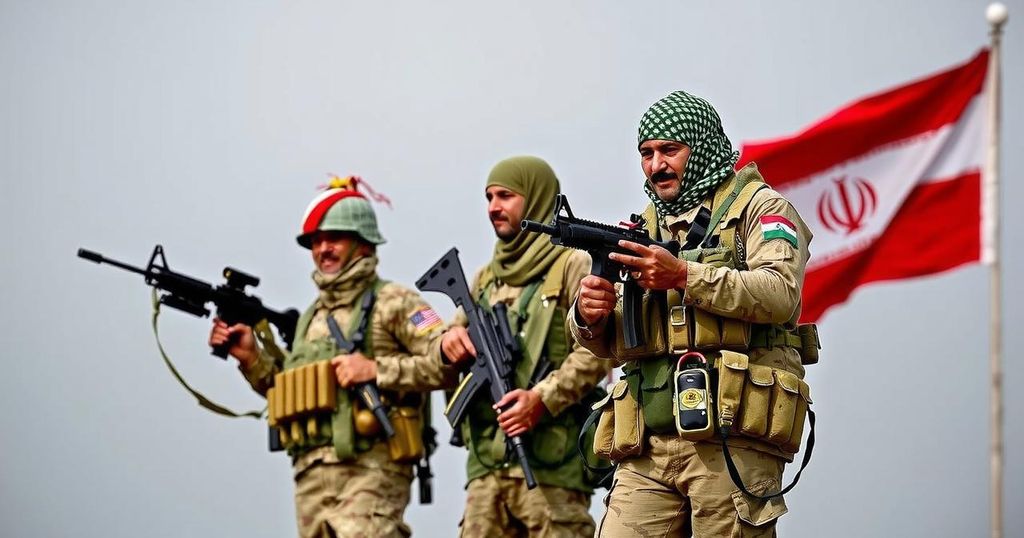The U.N. report details the transformation of Yemen’s Houthi rebels into a powerful military force due to support from Iran and regional allies. The Houthis have increased maritime attacks disrupting global shipping, utilized advanced weaponry, and intensified recruitment efforts of youth and children amidst a deteriorating humanitarian situation. Dramatic growth in their military capabilities underscores the conflict’s transformation into a significant international crisis linked to broader regional tensions.
Recent findings from a United Nations report reveal that Yemen’s Houthi rebels have undergone a significant transformation, evolving from a local militia with limited capabilities into a formidable military entity, aided by external support from Iran, Iraqi armed factions, and Lebanese Hezbollah militants. This transformation has been accentuated by the ongoing conflict in Gaza, during which the Iranian-backed Houthis have sought to bolster their standing within what is referred to as Iran’s “Axis of Resistance,” thus expanding their influence across the region. The report indicates that the Houthis have actively engaged in hostile actions within strategic waterways, including the Red Sea and the Gulf of Aden, disrupting global shipping lanes by conducting attacks on various vessels, purportedly targeting those linked to Israel. However, the scope of their aggressions has been far broader than claimed, as they targeted at least 134 maritime crafts, including commercial shipping and warships from the United States and the United Kingdom, since mid-November 2023. Central to these operations is the use of a previously unreported ballistic missile known as the Hatem-2, further illustrating the enhanced military capabilities the Houthis now possess. The report also highlights the burgeoning relationship between the Houthis and other extremist organizations, including al-Qaida, thus illustrating the evolving dynamics of the conflict, which commenced as an internal power struggle in Yemen but has transformed into a significant international crisis, exacerbated by regional tensions. Analysts estimate that the Houthi fighting force has expanded dramatically, with current estimates suggesting a strength of approximately 350,000 fighters as opposed to 220,000 just two years prior. This escalation is attributed to extensive support from Iran’s elite Quds Force, Hezbollah, and other regional actors who furnish the Houthis with sophisticated military technology and training. The recruitment of personnel, particularly vulnerable youth and children from local and migrant communities, has intensified. Estimates indicate thousands of child recruits in the first half of 2024 alone, often forced into roles that expose them to grave dangers within the conflict. Predominantly, these youths are employed as human shields, in reconnaissance roles, or in tasks related to combat operations, raising serious moral and humanitarian concerns regarding the conduct of the Houthis within the ongoing civil war.
The conflict in Yemen began as a struggle between the Houthi movement and the internationally recognized government, escalating into a broader regional confrontation involving foreign support and multiple armed factions. Since their seizure of the capital, Sanaa, in 2014, the Houthis have received significant backing from Iran, which views them as a vital component within its regional strategy against certain adversaries, notably Israel and Saudi Arabia. The recent Israel-Hamas war has further ignited hostilities, prompting a dramatic shift in Houthi tactics and capabilities as they integrate into a larger framework of armed groups aligned against perceived threats. The report underscores a troubling rise in child recruitment and the utilization of civilian populations in armed conflict, pressing the importance of international attention to the humanitarian implications of the prolonged war in Yemen.
In conclusion, the U.N. report illustrates a concerning trend of military escalation among Yemen’s Houthi rebels, substantially supported by foreign actors, including Iran. This evolution has not only broadened their operational capabilities but also posed significant risks to maritime security and regional stability. The unethical recruitment of children into conflict further exacerbates the humanitarian crisis unfolding in Yemen, highlighting the urgent need for international intervention and support to mitigate the ongoing violence and protect vulnerable populations.
Original Source: www.voanews.com







